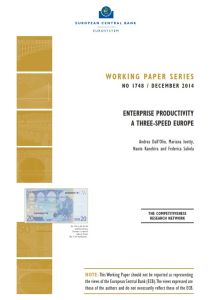
Recommendation
European Union nations fall into three distinct economic groups, according to economists Andrea Dall’Olio, Mariana Iootty, Naoto Kanehira and Federica Saliola of the European Central Bank. The superstars are fast growers such as the Czech Republic, Poland and Romania – the newer EU entrants that have only recently joined the global economy. In the middle tier are the stalwarts like slow-and-steady Germany, France and the United Kingdom. Bringing up the rear are Greece, Italy, Portugal and Spain. The European Union’s struggles remain a timely and riveting topic, but the writing here is dense and scholarly; don’t expect an easy read. Nonetheless, getAbstract recommends this authoritative report to investors, executives and policy makers.
Summary
About the Authors
Andrea Dall’Olio, Mariana Iootty, Naoto Kanehira and Federica Saliola are economists at the World Bank.







Comment on this summary